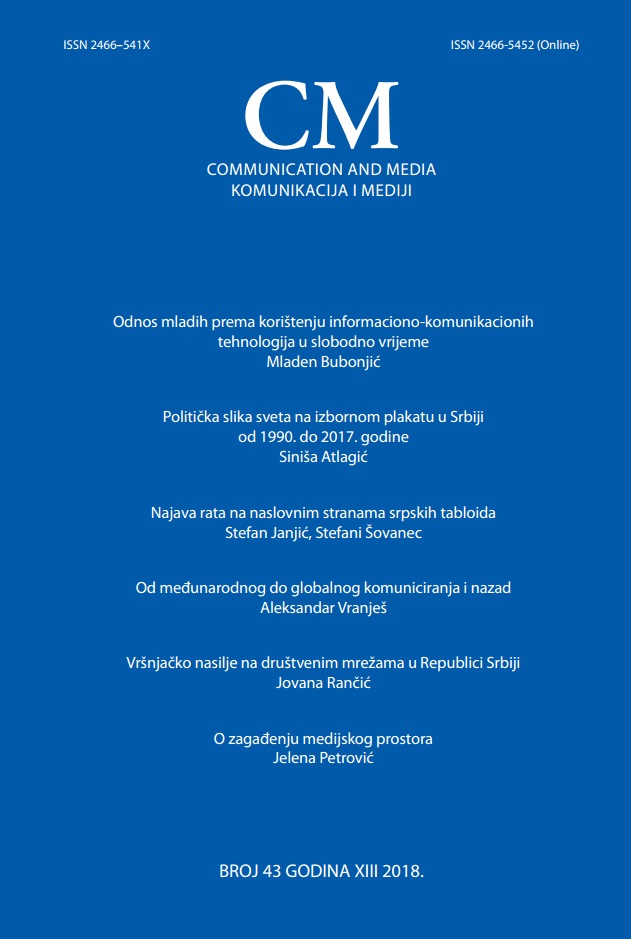Odnos mladih prema korištenju informacionokomunikacionih tehnologija u slobodno vrijeme
The Attitude of Youth Towards the Use of Information and Communication Technologies in Their Leisure Time
Author(s): Mladen BubonjićSubject(s): Media studies, Theory of Communication, Social Theory, Social Informatics
Published by: Fakultet političkih nauka Univerziteta u Beogradu
Keywords: information and communications technology; social networking sites; leisure; young people
Summary/Abstract: This paper presents the findings of empirical research on how information and communication technologies affect the leisure of high school students in Republika Srpska. Through interviews with respondents in focus groups, the goal was to answer to main research questions: How is the existence of leisure time interpreted within a new lifestyle and how young people perceive it? Do youth control virtual world or it controls them? Why „digital generations“, who make a special subculture in postmodernism, resort to social interactions through social media? How do new information and communication technologies affect young people’s leisure time? Which, if any, characteristics of information and communication technologies attracted younger users and increased the share in their leisure time? The research aimed at determining whether information and communication technologies provide young people with that what they expect from them when it comes leisure usage, first of all, what leisure means to them and how they spend it – in their opinion, is it worthwhile or less purposeful. It has been found that young people show mixed feelings towards digital technologies. Although they often have negative attitudes, especially towards social networking sites, the general tendency is that they massively use them, often for reasons that do not have a higher purpose. Highschool students in Republika Srpska generally do not see information and communication technologies as means to reach another goal, but as a way to spend their leisure time. The general conclusion of the paper is that young people do not really control their leisure, but they give it away to digital technologies.
Journal: CM Komunikacija i mediji
- Issue Year: 13/2018
- Issue No: 43
- Page Range: 5-28
- Page Count: 24
- Language: Serbian

